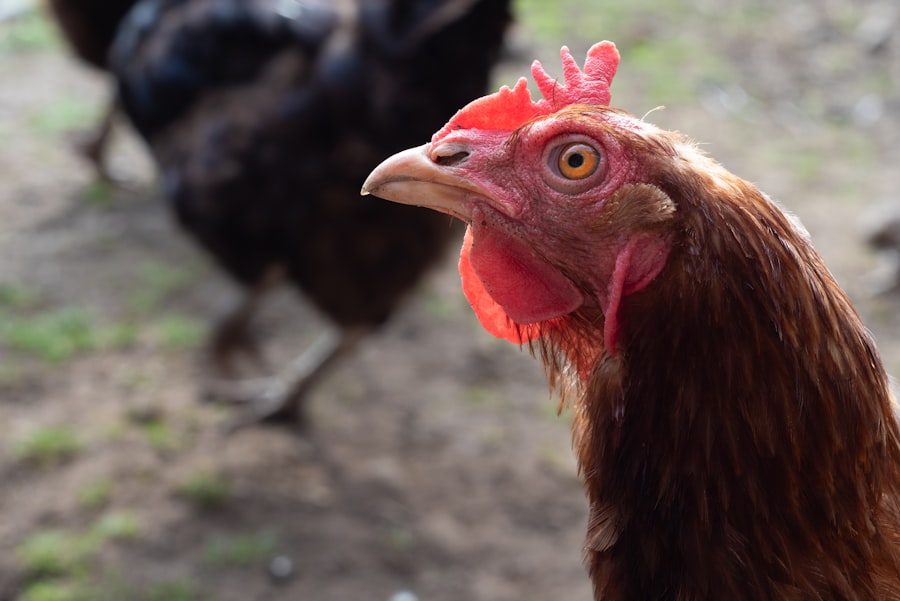Chicken ownership in residential areas is subject to local regulations that vary by city or town. These regulations may include zoning laws, restrictions on the number of chickens allowed per household, coop size requirements, property line setbacks, and waste management guidelines. Some areas prohibit keeping livestock in residential zones entirely, while others have specific rules for urban chicken keeping.
Local ordinances may also address the types of chickens permitted. Roosters are often restricted due to noise concerns, and some localities have breed-specific guidelines. It is essential for prospective chicken owners to research and understand their local regulations thoroughly before acquiring chickens.
Compliance with these regulations is crucial to avoid potential fines or penalties and to ensure responsible chicken ownership. By adhering to local rules, chicken owners can contribute positively to their community while enjoying the benefits of backyard poultry.
Table of Contents
- 1 Residential Zoning and Chicken Ownership
- 2 Limits on Chicken Numbers
- 3 Special Permits and Variances
- 4 Considerations for Urban and Suburban Areas
- 5 Best Practices for Responsible Chicken Ownership
- 6 Resources for Further Information
- 7 FAQs
- 7.1 What is the typical limit for keeping chickens in a residential area?
- 7.2 Are there any specific regulations regarding keeping chickens in urban areas?
- 7.3 Do I need to obtain a permit to keep chickens?
- 7.4 What are the main reasons for limits on the number of chickens allowed?
- 7.5 What should I consider before keeping chickens in a residential area?
Key Takeaways
- Local regulations regarding chicken ownership vary by city and county
- Residential zoning laws may restrict or permit chicken ownership
- There are often limits on the number of chickens allowed per household
- Special permits or variances may be required for chicken ownership in certain areas
- Considerations for urban and suburban areas include noise, waste, and neighbor relations
- Responsible chicken ownership includes proper coop maintenance and waste management
- Further information on local regulations can be found through city or county resources
Residential Zoning and Chicken Ownership
Understanding Zoning Restrictions
In many residential areas, keeping chickens may be prohibited due to zoning restrictions. However, some areas may have specific provisions for keeping a limited number of chickens as part of a hobby or sustainable living practice.
Reviewing Local Zoning Laws
It’s essential to review the zoning laws in your area to understand whether chicken ownership is permitted and under what conditions. Some areas may have specific requirements for coop size, setback distances from property lines, and waste management practices.
Compliance and Advocacy
By understanding these zoning regulations, you can ensure that you are in compliance with the law and avoid any potential conflicts with local authorities or neighbors. If you find that your area’s zoning laws do not currently allow for chicken ownership, you may consider advocating for changes to the regulations through local government channels.
Limits on Chicken Numbers

In addition to zoning regulations, many areas also have specific limits on the number of chickens that can be kept on a residential property. These limits are often put in place to prevent overcrowding, noise disturbances, and other potential issues associated with large numbers of chickens in a residential area. The specific limits on chicken numbers can vary widely depending on the area, with some locations allowing only a handful of chickens and others permitting larger flocks.
It’s important to carefully review the local regulations to understand the specific limits on chicken numbers in your area. By adhering to these limits, you can ensure that you are in compliance with the law and avoid any potential fines or penalties. Additionally, by keeping a reasonable number of chickens, you can help maintain a harmonious relationship with your neighbors and contribute positively to the overall community.
Special Permits and Variances
In some cases, it may be possible to obtain special permits or variances to keep chickens in areas where it is otherwise prohibited or restricted. These permits or variances are typically granted by local authorities and may involve a formal application process and review. Special permits or variances may be granted based on factors such as the size of the property, the distance from neighboring properties, and the intended use of the chickens (e.g., for eggs or as pets).
If you find that your area’s regulations do not currently allow for chicken ownership, it may be worth exploring the possibility of obtaining a special permit or variance. However, it’s important to approach this process with a clear understanding of the local regulations and a willingness to work collaboratively with local authorities. By following the proper channels and demonstrating a responsible approach to chicken ownership, you may be able to secure the necessary permits or variances to keep chickens on your property.
Considerations for Urban and Suburban Areas
In urban and suburban areas, there are often additional considerations to take into account when it comes to owning chickens. These densely populated areas may have stricter regulations regarding noise, waste management, and property use, making it more challenging to keep chickens in compliance with local laws. Additionally, space constraints and proximity to neighbors can present unique challenges for chicken owners in urban and suburban areas.
Before bringing chickens into an urban or suburban setting, it’s important to carefully consider these factors and ensure that you are prepared to meet any additional requirements that may be in place. This may involve investing in soundproof coop designs, implementing effective waste management practices, and engaging in open communication with neighbors about your intentions to keep chickens. By proactively addressing these considerations, you can demonstrate a responsible approach to chicken ownership and help mitigate potential conflicts with local authorities or neighbors.
Best Practices for Responsible Chicken Ownership

Responsible Chicken Ownership: A Guide to Best Practices
Providing a Safe and Healthy Environment
Regardless of the specific regulations in your area, there are several best practices that all chicken owners should follow to ensure responsible ownership. This includes providing adequate space for the chickens to roam and exercise, maintaining clean and sanitary living conditions in the coop, and ensuring proper waste management practices.
Minimizing Disturbances and Being a Good Neighbor
Additionally, responsible chicken ownership involves being mindful of noise levels and taking steps to minimize any potential disturbances to neighbors.
Ongoing Education and Staying Informed
It’s also important for chicken owners to stay informed about best practices for chicken care and seek out resources for ongoing education. This may involve joining local poultry associations, attending workshops or seminars on chicken husbandry, and staying up-to-date on advancements in chicken health and wellness.
Contributing to Sustainable Living Practices
By committing to responsible ownership practices and ongoing education, chicken owners can contribute positively to their communities and help foster a greater understanding of sustainable living practices.
Resources for Further Information
For those interested in learning more about local regulations and best practices for chicken ownership, there are several resources available for further information. Local government websites often provide detailed information on zoning laws and regulations related to chicken ownership. Additionally, agricultural extension offices and poultry associations can be valuable sources of information and support for new and experienced chicken owners alike.
Online forums and social media groups dedicated to chicken ownership can also provide a wealth of knowledge and support from fellow enthusiasts. These platforms offer opportunities to connect with other chicken owners, share experiences, and seek advice on a wide range of topics related to chicken care and management. By tapping into these resources, individuals can gain a deeper understanding of the regulations and best practices relevant to their specific area and connect with a community of like-minded individuals who share their passion for responsible chicken ownership.
If you’re wondering how many chickens you are allowed to keep, you may also be interested in learning about the best kind of coop for chickens. Check out this article to find out more about creating the perfect living space for your feathered friends.
FAQs
What is the typical limit for keeping chickens in a residential area?
In most residential areas, the typical limit for keeping chickens is around 4-6 hens. However, this can vary depending on local ordinances and regulations.
Are there any specific regulations regarding keeping chickens in urban areas?
Yes, many urban areas have specific regulations regarding keeping chickens, including limits on the number of chickens allowed, coop requirements, and distance restrictions from neighboring properties.
Do I need to obtain a permit to keep chickens?
In some areas, a permit may be required to keep chickens. It’s important to check with your local government or homeowners’ association to determine if a permit is necessary.
What are the main reasons for limits on the number of chickens allowed?
Limits on the number of chickens allowed are often in place to prevent noise disturbances, odor issues, and to maintain the overall aesthetics of the neighborhood.
What should I consider before keeping chickens in a residential area?
Before keeping chickens in a residential area, it’s important to consider local regulations, neighbors’ concerns, and the time and effort required to properly care for the chickens. Additionally, ensuring that the chickens are kept in a secure and sanitary manner is crucial.

Meet Walter, the feathered-friend fanatic of Florida! Nestled in the sunshine state, Walter struts through life with his feathered companions, clucking his way to happiness. With a coop that’s fancier than a five-star hotel, he’s the Don Juan of the chicken world. When he’s not teaching his hens to do the cha-cha, you’ll find him in a heated debate with his prized rooster, Sir Clucks-a-Lot. Walter’s poultry passion is no yolk; he’s the sunny-side-up guy you never knew you needed in your flock of friends!
Meet Walter, the feathered-friend fanatic of Florida! Nestled in the sunshine state, Walter struts through life with his feathered companions, clucking his way to happiness. With a coop that’s fancier than a five-star hotel, he’s the Don Juan of the chicken world. When he’s not teaching his hens to do the cha-cha, you’ll find him in a heated debate with his prized rooster, Sir Clucks-a-Lot. Walter’s poultry passion is no yolk; he’s the sunny-side-up guy you never knew you needed in your flock of friends!







